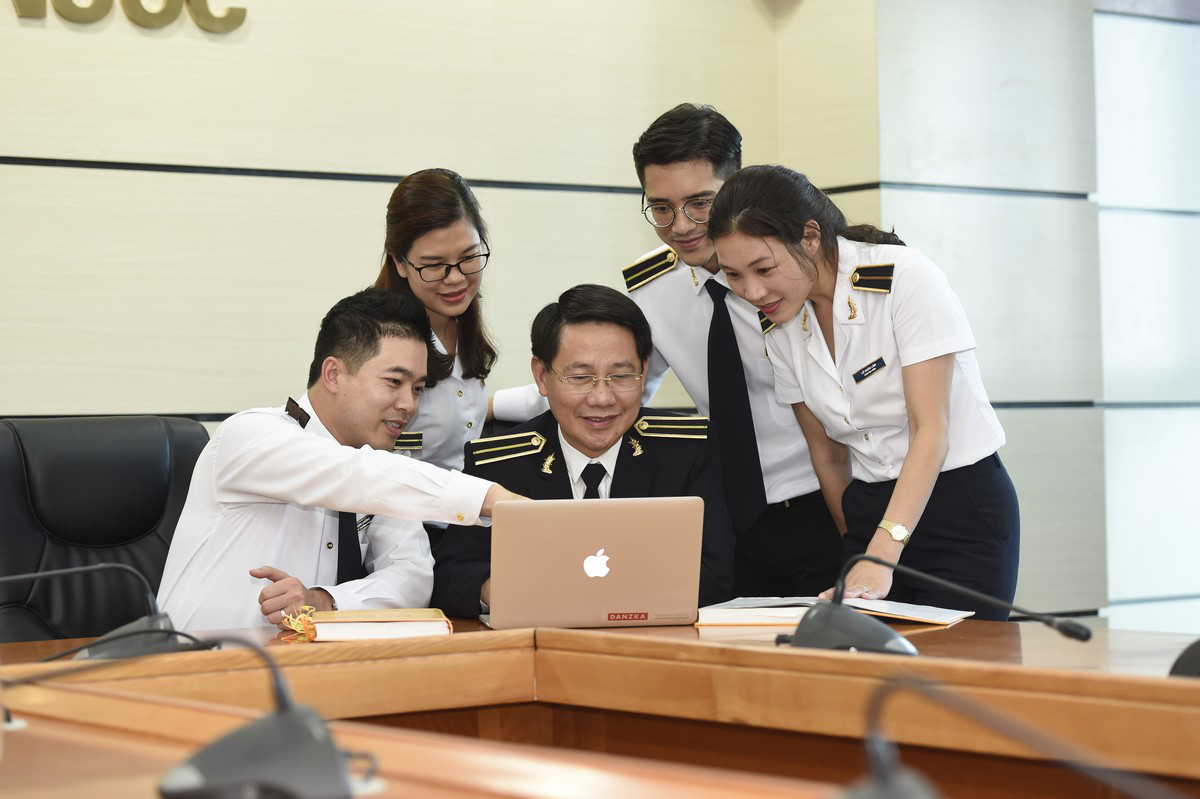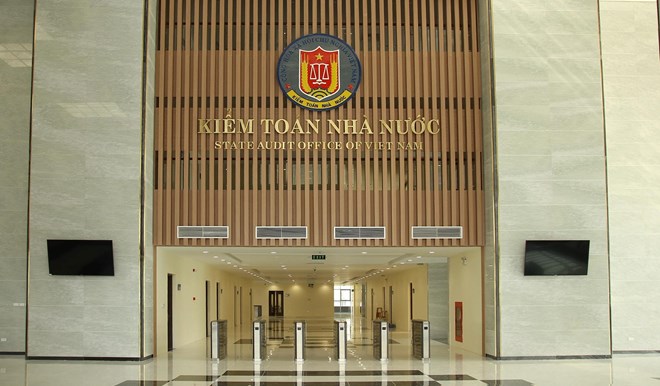07 principles for evaluating and ranking the quality of civil servants, public employees, and workers in the state audit in Vietnam
What are the principles for evaluating and ranking the quality of civil servants, public employees, and workers in the state audit in Vietnam? – Ha Phuong (Binh Thuan)

07 principles for evaluating and ranking the quality of civil servants, public employees, and workers in the state audit in Vietnam (Internet image)
Regarding this issue, LawNet would like to answer as follows:
On November 9, 2023, the State Audit issued Decision 1368/QD-KTNN on regulations on evaluating and classifying the quality of civil servants, public employees, and employees of the state audit.
07 principles for evaluating and ranking the quality of civil servants, public employees, and workers in the state audit in Vietnam
The assessment and ranking of the quality of civil servants, public employees, and workers by the state audit must comply with the following principles:
(1) Ensure objectivity, fairness, and accuracy; no respect, oppression, favoritism, or formality; Ensure proper management and evaluation of civil servants and public employees.
(2) Quality assessment and grading must be based on assigned responsibilities and tasks and the results of task performance expressed through specific work and products; For civil servants and public employees, leadership and management must be based on the results of performing tasks assigned to the unit assigned to lead, manage, and be in charge; For civil servants and public employees participating in audit teams, they must base their decisions on the audit results of the year and the results of implementing audit conclusions and recommendations in the years before the year of assessment to be determined in the year of assessment (if any).
The assessment needs to clarify the strengths, weaknesses, shortcomings, limitations in quality, capacity, results of implementing assigned tasks, work efficiency, qualifications, and development prospects of civil servants and public employees.
For civil servants and public employees participating in the audit in the year of assessment and having audit results recommending adjustments, the quality will not be graded at the level of excellent completion of tasks, depending on the nature and level; The unit heads consider and classify the quality at an appropriate level.
(3) The rating of an individual holding a management position is not higher than the rating of the organization or unit directly in charge.
(4) Civil servants and public employees whose working time during the year is less than 06 months are not subject to quality assessment and grading but must still review their working time during the year except for maternity leave.
Civil servants and public employees who take a leave of absence from work according to the provisions of the law during the year from 03 months to less than 06 months will still be evaluated, but they will not grade the quality at the level of good task completion or higher.
Civil servants and public employees taking maternity leave according to the provisions of the law, the quality rating results for the year are the quality rating results of the actual working time of that year.
(5) The results of evaluating and ranking the quality of civil servants and public employees are used as a basis for communication in evaluating and ranking the quality of party members.
(6) Civil servants and public employees who are subject to party or administrative discipline shall be evaluated and ranked as follows:
(i) Civil servants and public employees who are subject to party or administrative discipline in the year of assessment will have their quality graded at the level of not completing their tasks, except for the cases specified in (ii);
(ii) In cases where the violation has not yet had a disciplinary decision from the competent authority but has been used as a basis for assessment and quality classification at the level of failing to complete the task in the year of assessment, disciplinary decisions issued after the year of assessment for that violation (if any) will not be counted to evaluate and classify the quality in the year of the disciplinary decision;
(iii) In cases where civil servants and public employees are party members and have been subject to party discipline and administrative discipline for the same violation, party disciplinary decisions and administrative disciplinary decisions that do not take effect in the same year of assessment are only counted as the basis for a quality rating in one year of assessment.
(7) The proportion of civil servants and public employees classified as "Excellent completion of tasks" among the total number of civil servants and public employees at the unit does not exceed the proportion of party members classified as "Excellent completion of tasks" according to the Party's regulations.
In cases where the unit has excellent and outstanding achievements, completed assigned tasks ahead of schedule, completed unexpected tasks well, and has suggestions or organized innovation to create positive change, bring value, and use practical efficiency, the Auditor General shall decide on the rate of excellent completion of tasks in accordance with reality, ensuring the legitimate rights and interests of civil servants and public employees.
More details can be found in Decision 1368/QD-KTNN, taking effect from the date of signing.
- Key word:
- State Audit
- in Vietnam
- Number of deputy directors of departments in Vietnam in accordance with Decree 45/2025/ND-CP
- Cases ineligible for pardon in Vietnam in 2025
- Decree 50/2025 amending Decree 151/2017 on the management of public assets in Vietnam
- Circular 07/2025 amending Circular 02/2022 on the Law on Environmental Protection in Vietnam
- Adjustment to the organizational structure of the Ministry of Health of Vietnam: Certain agencies are no longer listed in the organizational structure
- Vietnam aims to welcome 22-23 million international tourists in Vietnam in 2025
-

- Inspection dossier on the implementation of State ...
- 16:32, 07/01/2025
-

- Latetst regulations on the monthly briefing meetings ...
- 10:30, 12/12/2024
-

- Latest regulations on the signing of documents ...
- 09:00, 12/12/2024
-

- Promulgating the System of State Audit Standards ...
- 11:19, 02/12/2024
-

- Powers and duties of State audit collaborators ...
- 10:00, 04/10/2024
-

- Notable new policies of Vietnam effective as of ...
- 16:26, 11/04/2025
-
.Medium.png)
- Notable documents of Vietnam in the previous week ...
- 16:21, 11/04/2025
-
.Medium.png)
- Notable documents of Vietnam in the previous week ...
- 16:11, 02/04/2025
-
.Medium.png)
- Notable new policies of Vietnam to be effective ...
- 16:04, 02/04/2025
-
.Medium.png)
- Notable new policies of Vietnam effective from ...
- 14:51, 21/03/2025
 (1).png)
 Article table of contents
Article table of contents
